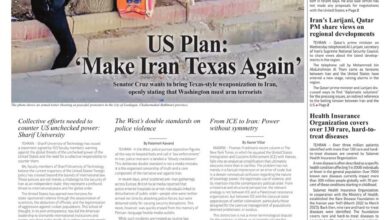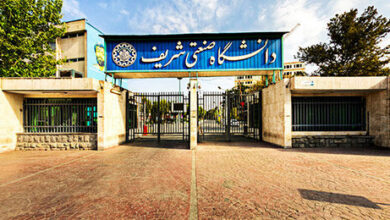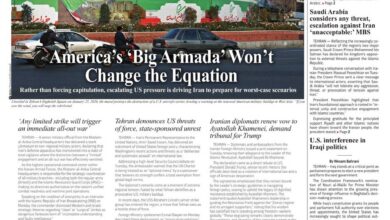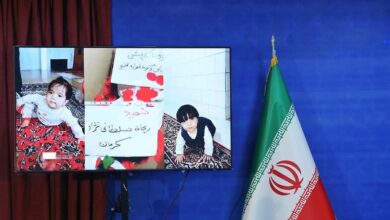-
news

-
news

Western pressure will not halt Iran’s scientific sovereignty, says nuclear chief
TEHRAN – Mohammad Eslami, the head of the Atomic Energy Organization of Iran (AEOI), has condemned Western attempts to curtail…
Read More » -
news

From ICE to Iran: Power without symmetry
MADRID – Thomas Friedman’s recent column in The New York Times, in which he equated the United States Immigration and Customs…
Read More » -
news

US plan: ‘Make Iran Texas again’
TEHRAN – Ted Cruz, the U.S. senator from Texas, has a reputation for rhetoric that often outpaces his grasp of…
Read More » -
news

Collective efforts needed to counter US unchecked power: Sharif University
TEHRAN – Sharif University of Technology has issued a statement signed by 103 faculty members warning against the global threats…
Read More » -
news

Hamas official rejects foreign diktats on Palestinian arms
A senior Hamas political bureau member sharply criticized Israeli Prime Minister Benjamin Netanyahu, accusing him of obstructing the transition to…
Read More » -
news

-
news

-
news

US put on trial for the 2024 Kerman terrorist attack
TEHRAN – A court hearing was held about the United States’ complicity in the terrorist attack by ISIS operatives in…
Read More » -
news

Persepolis complete signing of Farzin Moamelegari
TEHRAN – Persepolis football club have completed the signing of Shams Azar left-back Farzin Moamelegari. The 22-year-old defender has joined…
Read More »